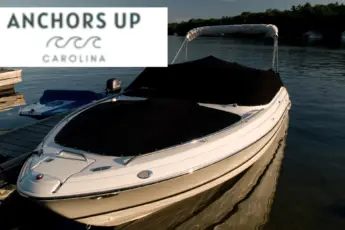Much the same as driving a vehicle, the operation of a boat must be done while paying close attention to your passengers, the weather, waters ahead, and other vessels and objects. When it comes to steering a craft, danger may lie ahead that you cannot see with your eyes. Utilizing electronics and reading the water can help to avoid running aground. What if your boat runs aground at high speed? And even more important, your boat runs aground at high speed. What should you do first? The first steps are critical.
Why Do Boats Run Aground
Boats run aground for many different reasons. One of the primary reasons is that the boater is uneducated on the water they are driving. Another reason is they are not adequately using navigational equipment that will guide them to steer around shallow areas or hitting land. Lastly, the driver ignores the task at hand by losing focus and drives off course.
Where Do Most Boaters Run Aground At High Speed
Boaters can run aground in both freshwater and saltwater throughout the states of Georgia, South Carolina, and North Carolina.
Freshwater
Lakes, rivers, and reservoirs generally do not have shifting shallow spots. For the most part, the bottom remains the same except for water levels. Some lakes and reservoirs have extreme depth changes because of weather and the generation of electricity. Since lakes don’t have tides, avoid shallow areas to prevent running aground.
Saltwater
The coastal waters of North Carolina, South Carolina, and Georgia have tidal swings that can allow areas to have plenty of clearance for a boat to pass at high tide and an exposed sandbar or oyster bed at low tide. Other risk factors including shifting sands which cause a craft to run aground where it is unexpected.
What If Your Boat Runs Aground At High Speeds
Most importantly is to check the safety of your guests. When a vessel runs aground at high speeds and can cause the boat to stop abruptly, the abrupt stop can launch its occupants out or cause severe injuries from colliding with hard objects inside. Call the Coast Guard for immediate assistance in the event of a missing person or injuries.
Depending on what the boat hits, it may simply slide up on sand or cause substantial damage to the hull when hitting rocks or oysters. Assess what you have become grounded on because if the tide is incoming, you are at risk of sinking from hull damage.
The engine may also be impacted if your boat runs aground at high speed. Safely evaluate the condition of the boat’s motor.
In the event, you run aground, it is essential to know if your boat runs aground at high-speed what should you do first.
What Should You Do First If Your Boat Runs Aground At High-speed
Many people ask the question if your boat runs a ground at high-speed what should you do first. The first thing that you should do is take a head count of all of the people aboard the vessel. Unfortunately, passengers become thrown into the water and may have become knocked unconscious from hitting their head.
Secondly, after doing a head count as the beginning step of what should you do first if your boat runs aground? Immediately begin to search for someone who has gone overboard and call for help.
What Should You Do To Return Back To The Dock After Running Aground
The operator and guests are at risk when on a boat that has run hard aground. Once everyone has been evaluated, determine if you can wait for the tide to change to remove and operate the craft back to the dock safely.
In most situations, the boat will be required to be towed. Call a tow service such as Seatow or Towboat US to remove the vessel and its passengers. Depending on the collision, the local authorities may need to be notified and particularly when injuries occur.
How to avoid running aground
Running aground can and should be avoided. Study a chart of the local waters to become familiar, utilize navigation equipment to remain on course, keep a lookout of the waters ahead for dangerous areas, and minimize running at night unless you know the shallow spots well. Do everything you can to prevent boat runs aground at high speed.
Now You’re Prepared If You Run Aground
If your boat runs aground at high speed, you will be prepared to handle the situation. Your boat runs aground at high speed. What should you do first? Remember that you need to ensure that everyone is aboard the vessel. Groundings can be a serious situation, but knowing what to do ahead of time will help reduce the stress. Take time to learn the waters and go slow if you’re unfamiliar or unsure. A low-speed bump will lessen the chance of injuries and prevent high out-of-pocket expenses for repairs.








Leave a Comment
You must be logged in to post a comment.